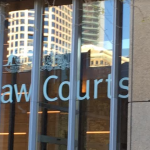The Law, Defences and Penalties for Drug Possession in New South Wales

Possessing a prohibited drug is an offence under section 10 of the Drug Misuse and Trafficking Act 1985 (NSW).
To establish the offence, the prosecution must prove beyond reasonable doubt that:
- You had possession of a substance,
- The substance was a prohibited drug or plant, and
- You knew a prohibited drug was in your possession.
The term ‘possession’ has been defined by the courts as in your ‘exclusive possession, custody or control’.
Prohibited drugs and plants
The Schedule to the Act contains a complete list of the substances classified as prohibited drugs and plants.
Some of the most frequently prosecuted prohibited illicit substances in New South Wales are:
- Amphetamines,
- Cocaine,
- Heroin,
- 3,4-Methylenedioxymethylamphetamine (MDMA, or ‘ecstacy’),
- Ketamine,
- Buprenorphine,
- Mescaline (magic mushrooms),
- Anabolic steroids, and
- Cannabis leaf, oil and resin.
What are the penalties for drug possession in New South Wales?
The maximum penalty for drug possession in New South Wales is 2 years in prison and/or a fine of 20 penalty units, which currently amounts to $2,200 (one penalty unit being $110 at the time of writing.
However, this is the maximum penalty that applies, and the courts have discretion to impose less-severe penalties, including non-conviction orders such as section 10(1)(a) dismissals and conditional release orders without conviction, which mean you will not have a criminal conviction recorded against your name.
But what penalties are actually handed down by the courts?
The Judicial Commission of New South Wales publishes statistics on the penalties handed down by the courts for the possession of illegal drugs.
According to the Commission, the penalties imposed for 41,579 cases that came before the courts can be broken down as follows:
| Penalty type | Number of cases | Percentage of cases |
| Fine (with criminal conviction) | 24,367 | 58.6% |
| Conditional release order without criminal conviction | 7,478 | 18% |
| Section 10A (with criminal conviction) | 2,750 | 6.6% |
| Community correction order (with criminal conviction) | 2,720 | 6.5% |
| Section 10(1)(a) dismissal (no criminal conviction) | 2,370 | 5.7% |
| Conditional release order with criminal conviction | 1,244 | 3% |
| Imprisonment (with criminal conviction) | 470 | 1% |
| Intensive correction order (with criminal conviction) | 232 | 0.6% |
Can I avoid a criminal record if I plead guilty to drug possession?
You will avoid a criminal conviction against your name despite pleading guilty to drug possession if the magistrate is persuaded in court that it is appropriate to deal with you by way of a ‘non conviction order’ such as a section 10(1)(a) dismissal or a conditional release order (a type of bond) without conviction.
In that regard, it is important to be aware there have been authoritative judgements in the higher courts which make clear there must be consistency in penalties imposed for drug possession, regardless of the drug type that was possessed.
This enables good lawyers to make persuasive arguments that, in the context of the availability of a cautioning scheme for cannabis and on-the-spot fines for certain other forms of drug possession (see below), it is appropriate to give those who police choose to send to court non-conviction orders.
Your likelihood of avoiding a criminal record will also be increased where you are able to prepare a letter of apology and character references for the court, and will be further increased where you undertake an intervention program such as the Magistrates Early Referral Into Treatment (MERIT) program or the SMART Recovery Program.
Your lawyer will advise you as to whether a program is appropriate for your particular set of circumstances and guide you on the preparation of materials for court, with a view to persuasively presenting your case for a non-conviction order.
Can I defend a charge of drug possession?
Yes, there are several ways to defend drug possession charges.
In that regard, it is important to bear in mind that the prosecution is required to prove each element (ingredient) of the offence beyond a reasonable doubt before you can be found guilty of the offence.
Exclusive possession
One of those elements is ‘exclusive possession’, which requires the prosecution to exclude any reasonable possibility the drugs were not possessed by you. This is known as ‘the rule in Filipetti’.
The prosecution may find it difficult to do this where drugs were found in the common area of a shared premises, or in a car not exclusively used by you.
Illegal search
Drug possession cases can also be defended on the basis that the initial search of you, your vehicle or premises was illegal.
In that regard, section 138 of the Evidence Act 1995 provides that evidence of any drugs found as a result of an illegal search must be excluded if the undesirability of admitting the evidence outweighs the desirability of its admission.
In making that determination, the court will consider matters such as:
- The importance and value of the evidence to the overall proceedings,
- The extent to which the law was broken or the level of impropriety used in obtaining the evidence,
- Whether the breach of law or impropriety was done deliberately or recklessly, and
- The ease or difficulty of obtaining the evidence without resorting to the impropriety or contravention used.
Excluding evidence of the drugs using the section will almost invariably put an end to the case against you.
Identification of person or drug, and available legal defences
The prosecution will also need to establish the substances were illicit drugs as alleged, that you were correctly identified as the person in possession, and it must also exclude any legal defences that may arise on the evidence in the case.
In the event there are inconsistencies, deficiencies or other problems in the prosecution case, or if there is evidence of an available legal defence, a good lawyer will write a document known as ‘representations’ to the prosecution formally requesting the withdrawal of the charge.
If the prosecution refuses to drop the case and it is ultimately thrown out of court, an application can be made for the reimbursement of your legal fees.
Defences to drug possession charges
Section 10(2) of the Act contains several specific defences to the possession of prohibited drugs.
These are known as ‘statutory defences’ and you are not guilty of the offence is any of them apply to your circumstances.
The statutory defences to drug possession are where you were:
- Licensed or authorised to have possession of the prohibited drug under the Poisons and Therapeutic Goods Act 1966,
- Acting under a poppy licence under the Poppy Industry Act 2016,
- Acting in accordance with an authority granted by the Secretary of the Department of Health where the Secretary was satisfied that the possession of the prohibited drug was for the purpose of scientific research, instruction, analysis or study,
- Acting in accordance with a direction given by the Commissioner of Police,
- A person for or to whom the prohibited drug was lawfully prescribed or supplied, or
- A person who had the care of, or was assisting in the care of, another person for or to whom the prohibited drug was lawfully prescribed or supplied, and had the prohibited drug in your possession for the sole purpose of administering, or assisting in the self-administration of, the prohibited drug to the other person in accordance with the prescription or supply.
In addition to this, general legal defences also apply to drug possession charges.
These include:
- Duress – which is where your conduct arose due to an imminent threat made to you or someone close to you, in circumstances where the threat was continuing and serious enough to justify your actions,
- Necessity -which is where you engaged in your actions to avoid serious, irreversible consequences to you or someone you were bound to protect, you honestly and reasonably believed you or the other person were in immediate danger and your actions were a reasonable and proportionate response to the danger, and
- Self-defence – which is where you believed your actions were necessary to defend yourself or another person, or to prevent the unlawful deprivation of your liberty or that of another person, or to protect your property from being taken, destroyed, damaged or interfered with, or to prevent criminal trespass to your land, or remove a person criminally trespassing, and your conduct was a reasonable response to the circumstances as you perceived them at the time.
Where there is evidence of an available general legal defence, the onus then shifts to the prosecution who must establish beyond a reasonable doubt that the defence does not apply in your case.
If the prosecution is unable to do this, you are entitled to an ‘acquittal’; in other words, a verdict of not guilty.
Are there alternatives to being taken to court?
Yes.
Police may exercise their discretion to issue an on-the-spot fine rather than sending you to court or, if you are found in possession of a small quantity of cannabis, issue a caution.
On-the-spot fines
Since 25 January 2019, police in New South Wales have had the power to issue on-the-spot fines for certain drug possession cases, rather than sending a person to court.
Paying the fine means you will not have a criminal conviction recorded against your name.
A fine of $400 may be issued where you are allegedly found with equal to or less than the small quantity of any illegal drug except cannabis leaf.
In the case of the non-capsule form of 3,4-Methylenedioxymethylamphetamine (MDMA, or ‘ecstacy’), a fine can only be issued where the amount is less than the traffickable quantity.
Small quantities for some of the most common illicit drugs are:
- Amphetamines – 1 gram
- Cocaine – 1 gram
- Heroin – 1 gram
- MDMA (ecstasy) – 1 gram
- Ketamine – 2.5 gram
- Buprenorphine – 4 grams
- Mescaline – 3 grams
- Steroids – 50 grams
- Cannabis oil – 2 grams
- Cannabis resin – 5 grams
The traffickable quantity of MDMA (ecstasy) is 0.75 grams.
You can either accept and pay the fine or elect (choose) to take the matter to court and defend the case, in which case the normal penalties will apply if you are ultimately found guilty.
Cannabis cautioning scheme
On-the-spot fines do not apply to cannabis leaf because the ‘cannabis cautioning scheme’ already gives police the discretion to issue a caution to adults who are found in possession of up to 15 grams of cannabis, and:
- Admit the offence,
- Do not have a prior conviction for a drug, sexual or violence offence, and
- Have not previously been given more than one cannabis caution.
A cannabis caution does not come with a fine.
Going to court for drug possession?
If you are going to court for drug possession, call Sydney Criminal Lawyers or (02) 9261 8881 or send us an email to arrange a free first conference with a drug defence lawyer who is vastly experienced in these types of cases, and who will advise you of your options, the best way forward and fight for the optimal result.
We offer fixed fees for drug possession cases.






